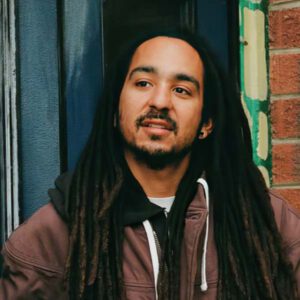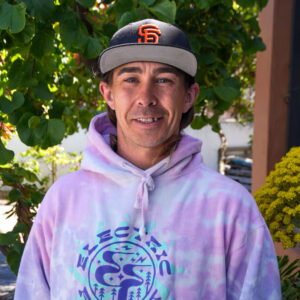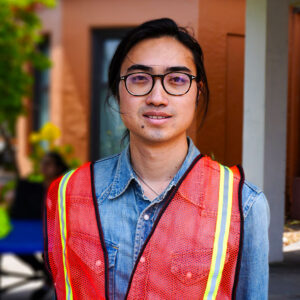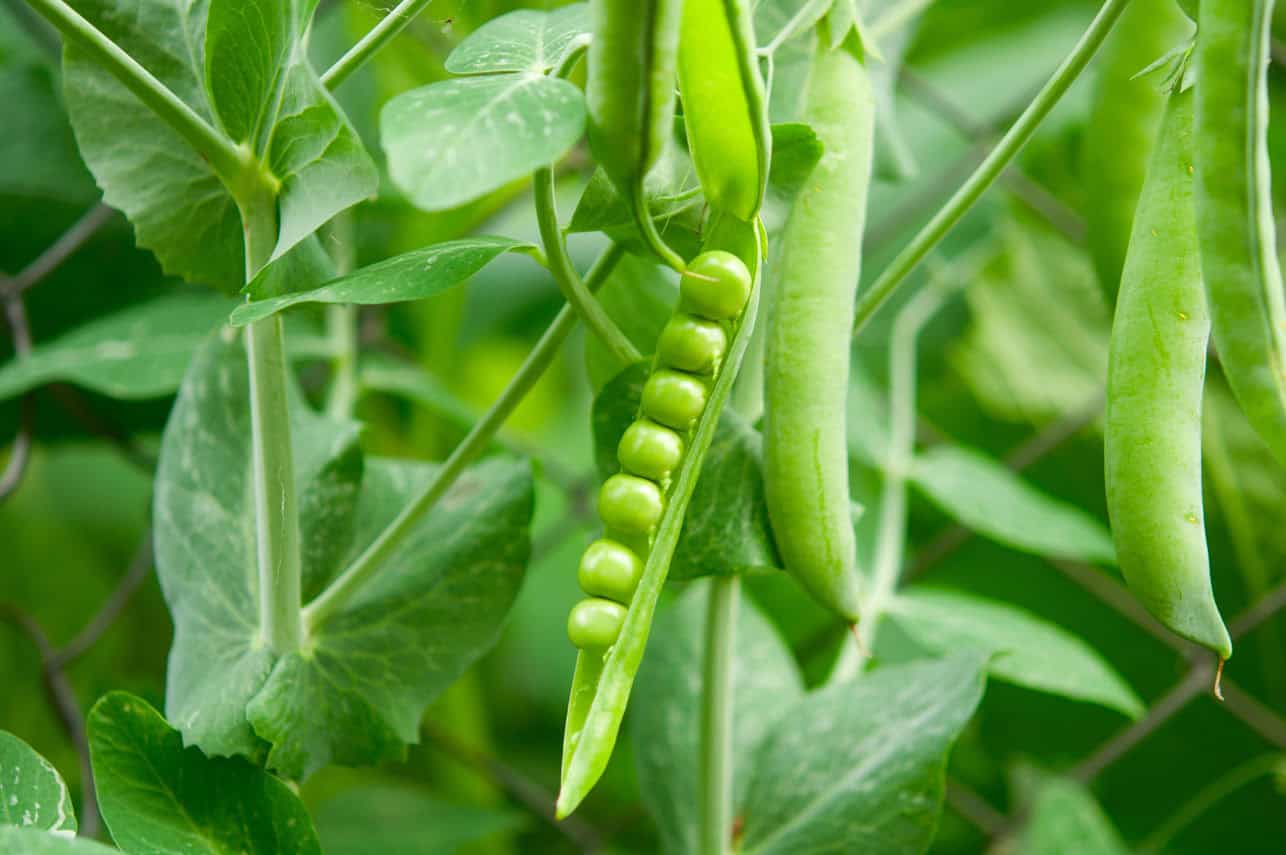The Green Gazette
Intern News – SF Summer 2024
Welcome to the first issue of The Green Gazette!
This newsletter was made to collect our memories during our internship program with A Living Library.
The OMI/Excelsior Living Library & Think Park serves children and youth from PreK through 12th grade at San Miguel Child Development Center, James Denman Middle School, Balboa High School, and Leadership High School. This unique, place-based, ecological learning program has linked the environmental and cultural lives of students from the adjacent schools since 1998.
Diving into Our First Week
As the clock struck 10 AM, a new set of interns strolled in through the gate. Thirty-three new faces sat eagerly in front of us, ready to start the program. JD conducted introductions, explained the syllabus and demonstrated how to use basic tools. Everyone attentively watched as he showed them how to handle shovels, pruners, and load wheelbarrows. Due to how chilly San Francisco weather is, we kicked it off with icebreakers. The interns separated themselves into small groups to discuss the questions posed which were there to help acquaint ourselves. After that, we were ready to dive in!
By the shed on Seneca Avenue, the interns cleared an overgrown area where a bush had grown so large that it resembled a tree. The interns had practiced using pruners and loppers as well wheelbarrowing. In the blink of an eye, with everyone’s collaborative effort, the job was completed. All of the trimmed weeds and stems were transported to the compost area. Later, we sifted through mounds of compost and sorted different materials such as grass, sticks, and leaves. We also reorganized the shed!
At the week’s end, we relocated our supplies from the lower garden to the shed at San Miguel. The tools, shovels, forks, and rakes, are hung while the smaller items like goggles and gloves are placed into boxes and laid onto shelves. Not only will all our supplies be easily accessible; now we don’t have to worry about potential little squeaky creatures hiding in crevices (even if it was a rubber ducky).
Introducing Our Educators

Jose Dolores DeAnda (aka JD) is the Director of Interns and an instructor at A Living Library. He initially pursued engineering at San Jose State University which was a decision driven by logical reasoning. However, his path took a turn when he faced an autoimmune disease (IBD) and had to leave the university. Coping with this health challenge reshaped his outlook on food and nutrition. When he returned to his academic journey, JD’s interest in broader perspectives led him to explore different subjects. When his counselor inquired about his interests, JD famously replied, “I’m interested in the whole world.” This led him to discover a passion for Geography, particularly sparked by an introductory course he stumbled upon while reviewing class pamphlets. Reflecting on this experience, JD remarked, “Everything I was learning stuck to me like glue. I remembered and truly understood the information.” Ultimately, JD received a bachelor’s in Geography from San Francisco State University.
After going through various jobs after college, from a geoengineering company testing soil compaction to Point Blue Conservation of Science as a field tech, JD found his calling as our instructor at A Living Library. Initially, JD was hesitant to commit to the job full-time, but after time passed, he realized that his vision aligned perfectly with China’s which was to make positive changes in the environment by working with the community and its youth. “Having these interactions with you kids and making it fun for you kept me around,” he reflected in an interview. “However, witnessing the growth of the program and its impact on interns, is the most rewarding part. Two years have passed, and through the team’s tireless effort, we want to expand our program by developing multiple A.L.L. branches while improving communities and establishing impactful curriculums. This year, the Interns created a newsletter.”

Ian Falcon Swift Harper’s passion for the outdoors stemmed from cultivated crops with his grandfather in their backyard. “I had the chance to put the start to the plant, put the seed in the ground, and watch them grow,” Falcon ruminated during the interview. He was mesmerized by the process of growing plants and found fulfillment in harvesting food. Growing up underserved and unprivileged, he observed how few community programs existed in his community.
For 20 years, he worked for his uncle, at Don Harper Company, where he painted houses. After leaving his uncle’s business, he committed himself to teaching the community how to resolve issues like living in a food desert, learning how to garden to grow one’s own food, and how to use hands in soil as a meditative outlet. These positive impacts, Falcon feels will affect future generations.
Initially active in multiple volunteering organizations, like Friends of the Urban Forest and Second Harvest Food Bank in Wisconsin, he now serves as an instructor at A Living Library, which ties him back to his older roots.
Lastly, although he thought that working in a role as educator, for youth, was a mountain he had to climb; he realizes now that it has become his trophy. “Connecting with the generations behind us, that’s the most valuable, that’s whose world this is.”

Jaden began his passion for the outdoors in the Scouting program, where over the course of ten years he would learn a variety of wilderness survival and naturalist skills involved in backcountry backpacking across Southern California. Jaden’s constant exposure to nature, in contrast to his daily urban upbringing in LA, developed into a lifelong energy motivated by a common passion to maintain and spread beauty, while instilling responsible habits in communities to do so. He led the Nature Conservation club in Culver City, planned several community volunteer projects like trash pickups and landscape restoration, and finally worked on passing a local law banning retail stores from using polystyrene (styrofoam) in takeaway containers, which would later be expanded to include a series of plastic and non-compostables.
Following this, Jaden moved to Edinburgh, the capital of Scotland to pursue a degree in Mathematics and Philosophy. It was in Scotland, where he experienced highly progressive policies, like universal healthcare and had access to higher education. There, he also experienced, progressive environmental policies ( 97% of the country’s energy consumption is sourced from renewable resources).
After graduating, Jaden went on to work as an Environmental business analyst in London, conducting industry ESG and United Nations sustainable development goals (SDG’s). But, he would soon find that his real passion for nature laid in hands-on community oriented work. Jaden now works as a tutor for subjects like Mathematics, Science (Physics & Chemistry), Writing and Rhetoric. He is, also, happy to be with ALL to further instill his passion to spreading community awareness by protecting and preserving the natural environment all around us.
Crop of the Week

PEAS
Time of Year: February, March, or April. Peas are often planted in the spring and they grow while the weather is still cool.
Harvesting: 60 to 70 days after planting. Furthermore, they should be harvested regularly in order for more pods to develop. Afterward, the last 5 days in the refrigerator or can be blanched and frozen to prolong their expiration.
Watering: they do not require a lot of water however, don’t let them dry out or else they won’t produce pods.
Companion Plants: Beans and cucumbers are great companion plants because they add nitrogen into the soil which help produce the pods. Potatoes and radishes help deter beetles and pests. Lastly, turnips and carrots help loosen the soil which allow better ventilations.
Fun fact: It’s an old American tradition to plant peas on St. Patrick’s Day!